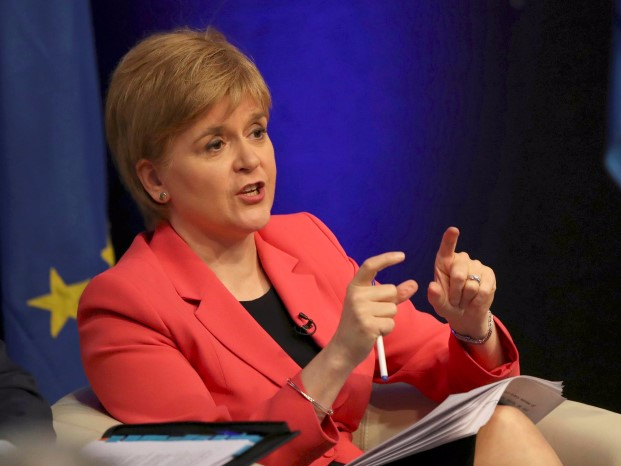LONDON – Scotland’s First Minister Nicola Sturgeon on Tuesday detailed her bold proposal to keep Scotland in the European single market after Brexit, even if the rest of the UK leaves.
The plan, published in a paper titled “Scotland’s Place in Europe,” calls for the whole of the UK to remain the single market, but outlines a separate plan for a “substantial” transfer of powers which would allow Scotland to remain part of the free-trade zone.
Sturgeon added that she would most likely call a second independence referendum if Prime Minister Theresa May doesn’t agree to these requests.
Speaking at a press conference to launch the paper, Sturgeon cited analysis which suggested that leaving the single market could destroy 80,000 jobs in Scotland, and cost every worker £2,000 over a decade.
She called for the UK government to clarify whether it intends to remain in the single market and customs union or as soon as Article 50 is triggered. She said: “It would make no economic sense whatsoever for the UK to leave the single market. It would be entirely democratically justifiable for the UK to remain within it.”
Sturgeon accepted, however, that it was "unlikely" May would opt to retain the UK's single market membership, given the pressure she is under to reduce immigration. Any state that wants to be a member of the internal market must accept the free movement of people, an agreement that has led to high levels of EU migration to the UK.
The main alternative outlined in the paper is a "Norway option," whereby Scotland would remain within the single market by remaining part of the European Economic Area (EEA) as a non-EU member - as countries including Norway, Iceland, and Switzerland currently are. It would also mean that Scotland co-operated closely with the rest of the trading bloc on major policy areas such as energy and justice, even if the rest of the UK does not.
The proposed arrangement would also see the Scottish government gain control over large areas of policy currently controlled by the EU - chiefly immigration and trade, in order to ensure that the Scotland could "comply with the obligations of [single-market] membership."
The first minister said that such a "fundamental" revision of the devolution arrangement was necessary to avoid a "Westminster power grab" of policy areas repatriated from the European Union after Brexit.
Sturgeon said that the government's response to her call for greater devolved powers would "tell us much, perhaps everything, about whether the UK is a partnership of equals."
Downing Street looks unlikely to offer Scotland significant concessions on the single market, however.
May pledged on Monday to listen "very seriously" to Sturgeon's proposals but insisted that the UK will get the best deal if it is "unified in its response."
Chancellor Philip Hammond also used a trip to Edinburgh earlier in December to rule out any trade or immigration concessions for Scotland.

